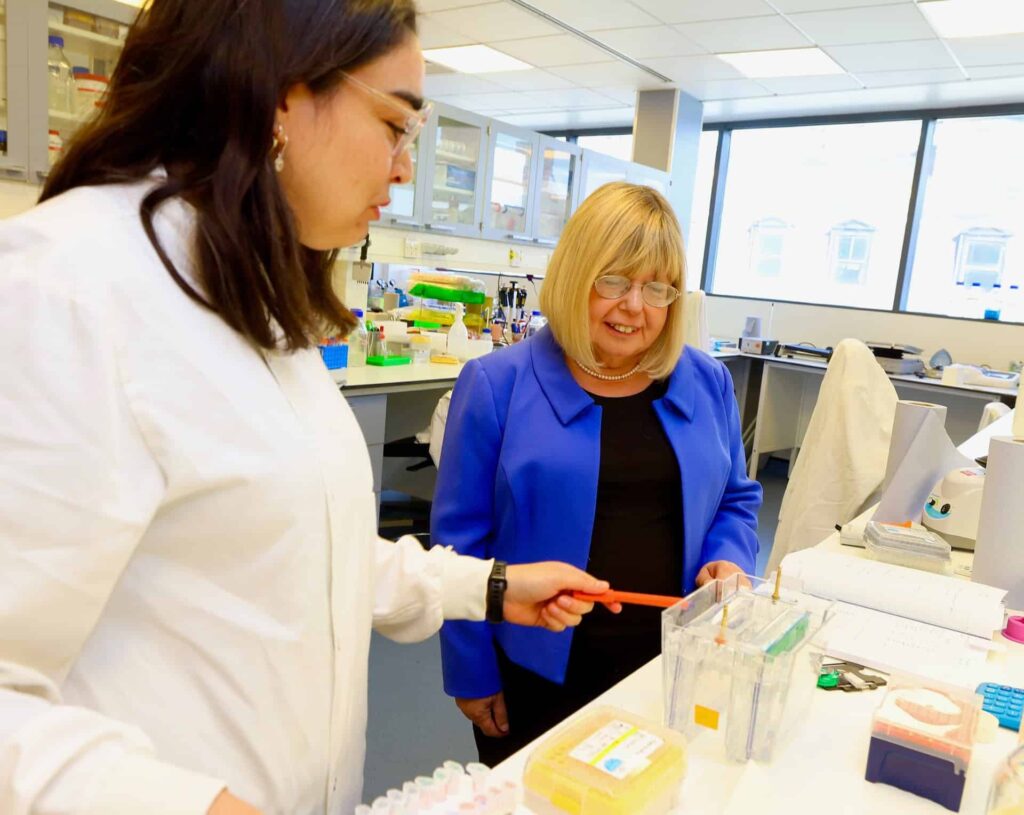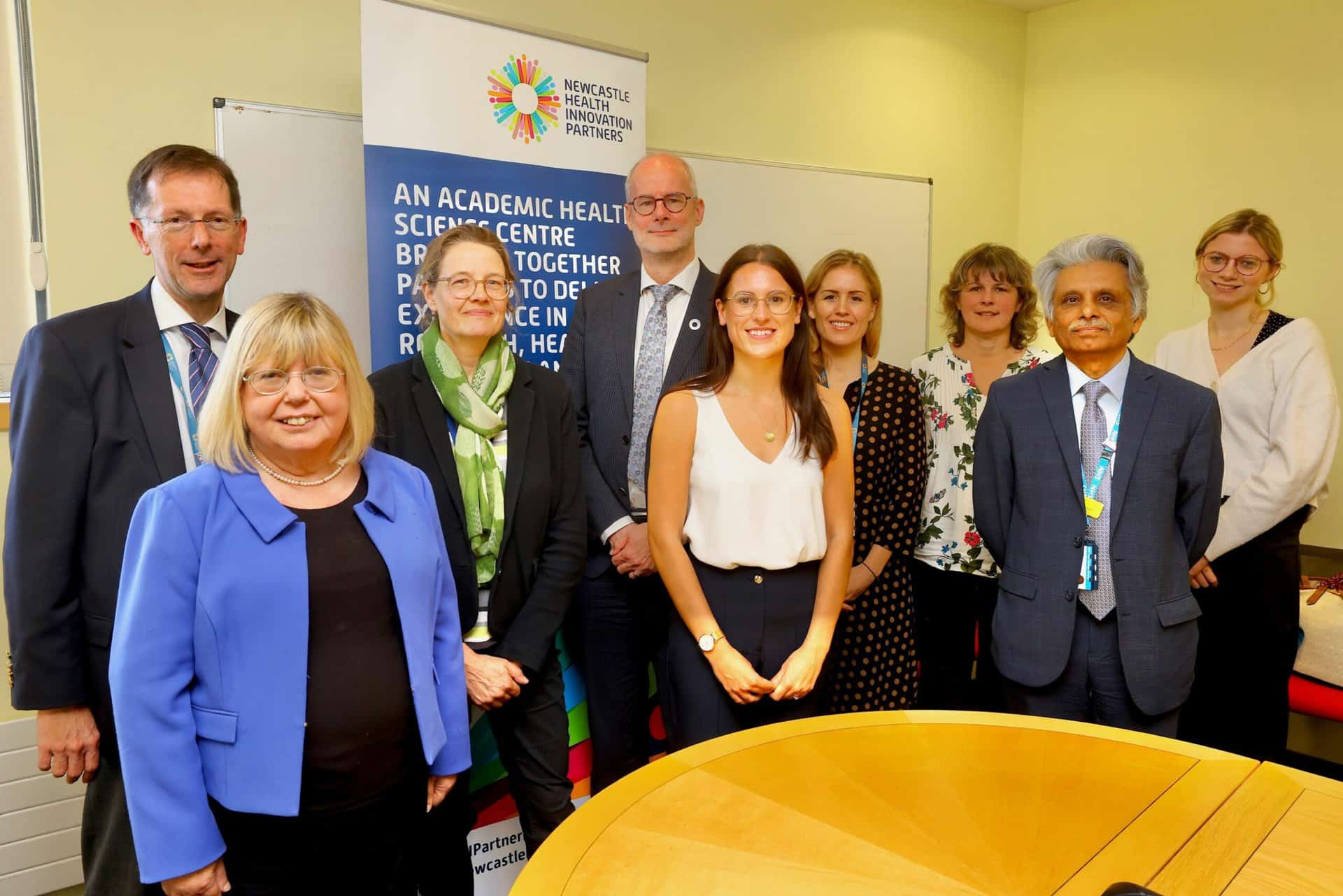
Liz Twist MP visited experts at Life to learn about how Newcastle is leading the way in rare disease and mental health research.
The Labour MP for Blaydon, Liz Twist also chairs the Westminster All Party Parliamentary Groups (APPGs) on Rare, Genetic and Undiagnosed Conditions, and Suicide and Self-Harm Prevention.

On 21 September, she met experts from Newcastle Upon Tyne NHS Foundation Trust, Newcastle University and Cumbria, Northumberland, Tyne & Wear NHS Foundation Trust (CNTW) to hear about their ground-breaking research into rare disease and mental health, as part of Newcastle Health Innovation Partners (NHIP).
Liz spent time with the NHIP team to find out how it supports partners to work collaboratively to translate research and innovation into real world benefit – for the physical and mental wellbeing of the people who live in our area. Rare disease and mental health research are key priorities for NHIP and she was given the opportunity to meet with experts in these areas.
Prof David Burn, NHIP Director, said: “It was a pleasure to host a visit with Liz Twist MP to share with her the pioneering work our partners are doing into rare disease and mental health research and how this links into our priorities within NHIP. Liz is a dedicated advocate in these areas through her APPG roles and it was particularly important for us to share with her how the work we do is benefiting patients to improve health outcomes in our area.”
During the visit, Liz heard how experts across Newcastle University and Newcastle Hospitals at the Newcastle Centre for Rare Disease work together to improve patients’ lives. She also learnt about CNTW’s development of the NE/NC Suicide and Self-harm Prevention Research Collaborative, alongside NHIP, including the importance of a multiagency approach and working with people with lived experience.
Liz met NHS and university rare disease teams during her visit, this included a special tour of the John Walton Muscular Dystrophy Research Centre, which works on translational research for rare neuromuscular diseases.
Liz rounded up her visit by meeting Stephanie Tanner, a clinical nurse specialist and mother of two sons who have Spinal Muscular Atrophy Type 2 (SMA). SMA is a rare genetically inherited neuromuscular condition that causes progressive muscle weakness and loss of movement due to muscle wasting (atrophy). Freddie, aged five, and Louis, aged one, both receive treatment from the muscle team in the John Walton Muscular Dystrophy Research Centre at the International Centre for Life.
Stephanie said: “The treatment that my boys have received from the centre has been life changing. Freddie was diagnosed with SMA at just six months old and this treatment enabled him to sit up on his own, lift his head and use his wheelchair.
“I found out that my youngest son Louis had SMA whilst I was pregnant, which meant that he could access an even newer treatment before he started to develop symptoms, to stop the progress of the disease. He was one of the first in the country to be given the treatment and lives a very happy healthy life, thanks to the tremendous research being done in this area.
“My own personal experience, and that of the patients we see here every day, shows just how important it is for people with rare diseases to have access to dedicated centres like this – so that they get accurate diagnoses, have opportunities to participate in clinical research and receive the best possible care.”
“Seeing the work from so many experts today at Life is incredible. So many people are directly benefiting from the ambition that the NHIP show, and I am blown away with the care and dedication of every single person involved.
“I recently visited the Mitochondrial Research team at Newcastle University and I felt compelled to push for further awareness and funding in Parliament. Today has served as another example or why we need to keep pushing for further investment into medical sciences here in the North East.”
